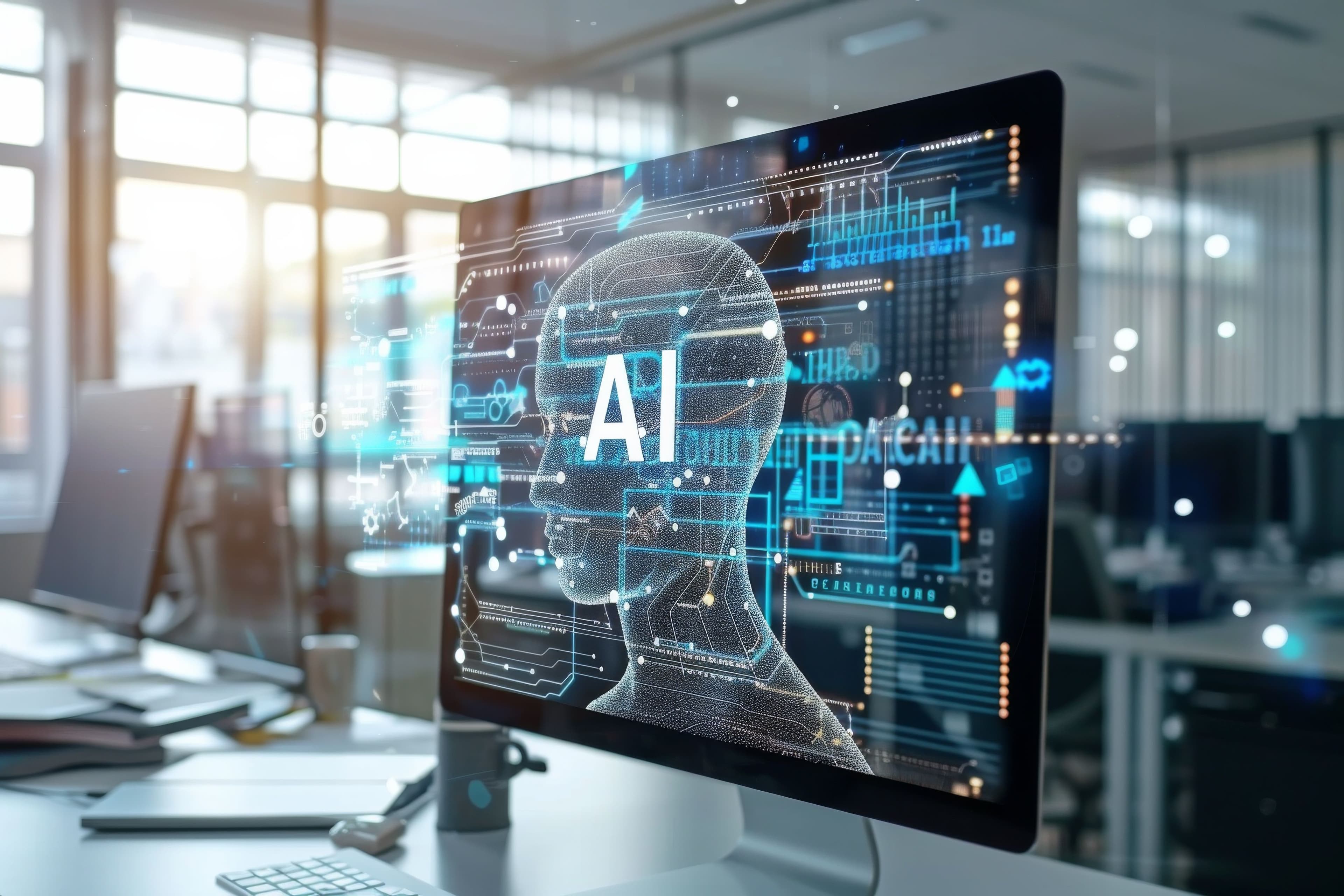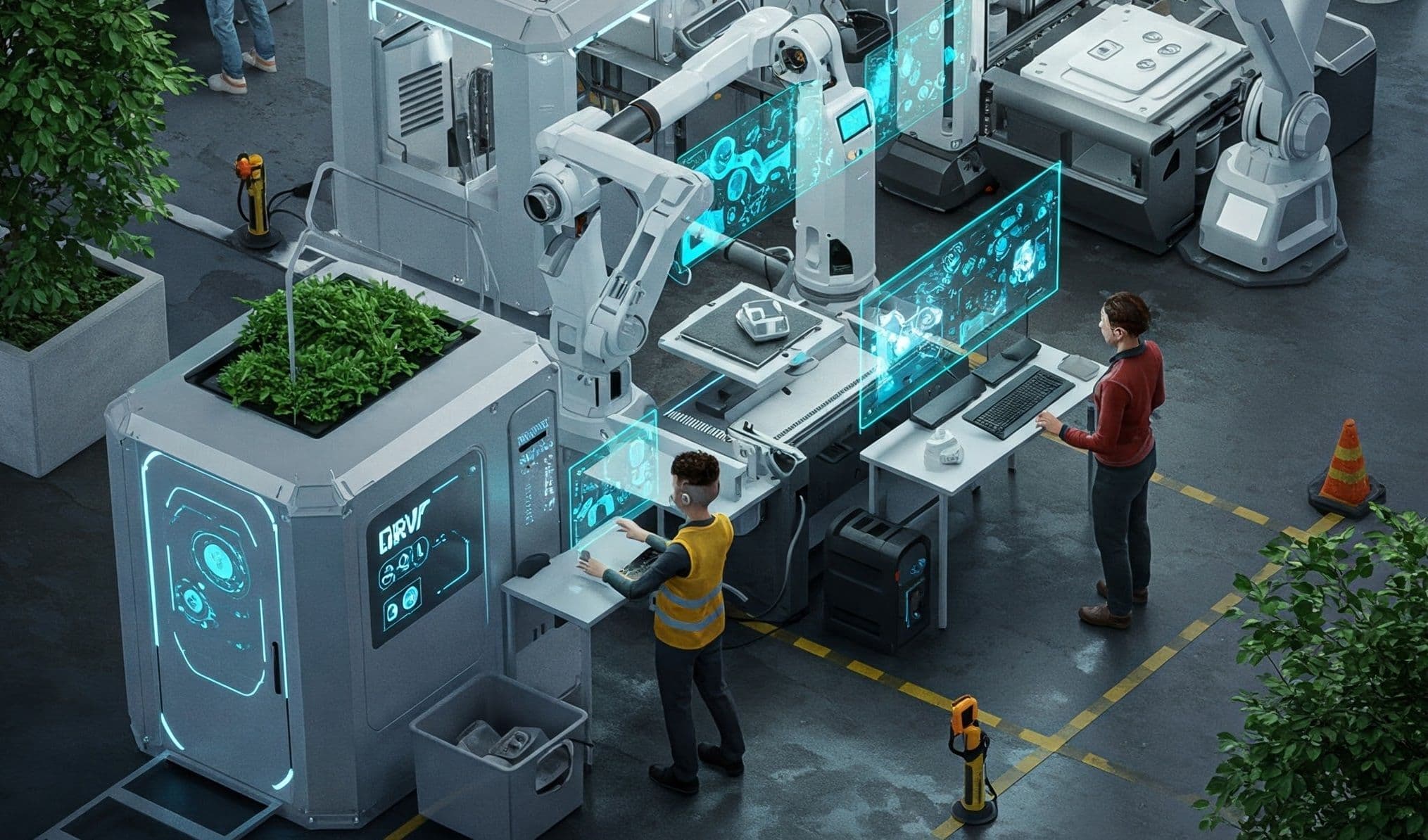
Generative Artificial Intelligence, The Force Driving Business Innovation
Generative AI is rapidly transforming the business landscape, optimising processes and fostering innovation. Through its ability to generate content and learn from data, generative AI drives automation and enhances human creativity. Ethical challenges and capabilities of a revolutionary technology.The silent revolution is already here, transforming the foundations of the business world. Gone are the days of slow and repetitive processes; generative artificial intelligence (GAI) is injecting an unprecedented dynamism into organisations, unlocking human potential and opening a universe of possibilities. From automating tasks to creating unimaginable content, this technology is rewriting the rules of the competitive game.
“These last 60 years we have seen two or three changes that changed everything in the world of technology. That is happening right now”, recently remarked Jensen Huang, founder and CEO of NVIDIA, one of the world's leading technology companies.
All sectors of the economy are benefiting from the potential of this tool. The key lies in learning to use it correctly, merging its astonishing qualities with human capability to achieve superior and disruptive solutions.
A Wave of Innovation
First, we must understand what it is and how it works. Unlike traditional AI models, GAI uses advanced machine learning techniques, especially artificial neural networks, to identify patterns in vast amounts of data and then autonomously generate texts, images, audio, computer code, and various types of digital content.
But beyond merely generating new content, GAI's true potential lies in its ability to learn from the data it consumes to assimilate and replicate human creative processes. Although it is still in its early stages, its disruptive potential is immense for automating and enhancing creative tasks previously reserved solely for human minds.
Many companies in developed countries have already started incorporating it into their development strategies and production processes. According to the report "The State of Generative Artificial Intelligence", prepared this year by Deloitte based on 1,982 surveys conducted with executives from six countries, 73% of organisations are already integrating generative AI into product development and research, as well as projects related to innovation and growth.
“We are in the early days of a major technological transformation, with generative AI beginning to drive a wave of innovation across all industries”, said Joe Ucuzoglu, CEO of the consulting firm that conducted the study.
Power and Transversality
Generative AI is disrupting virtually all industrial sectors, offering a range of transformative benefits. From optimising supply chains through exhaustive data analysis to strengthening cybersecurity with solutions that protect critical infrastructures, its impact is profound.
On the creative front, it enables the development of advanced virtual assistants that provide ingenious solutions in real-time, tools for automatic analysis and creation of high-quality documents, and prototyping capabilities with hyper-realistic images and text-guided video editing.
Its application spans industries as diverse as fashion, with the automatic generation of designs; advertising, with the creation of personalised ads; pharmaceuticals, with the acceleration of new drug discoveries; finance, with fraud detection; and the automotive industry, with the simulation of virtual prototypes of vehicles, among many others.
In all these areas, GAI enhances employee productivity, enables the creation of new products and services, optimises internal processes, and improves content accessibility. Its disruptive capacity promises to transform traditional business models, driving innovation and efficiency.
Big Projects Involve Big Challenges
However, this technological change is not without challenges that must be addressed responsibly. Organisations implementing GAI must consider its potential risks and ethical implications to ensure it is used in a way that benefits society as a whole.
The challenges are numerous: from biases and misinformation inherent in training data to privacy issues, copyright, and potential malicious uses. It is crucial, then, to address these concerns head-on, establishing ethical frameworks, controls, and safeguards based on principles such as transparency, accountability, and respect for human rights.
Another concern often raised is the impact that the implementation of generative AI may have on employment. As this tool becomes more advanced and capable of performing creative and cognitive tasks previously reserved for humans, there is a risk that certain job functions could become obsolete.
The reality is that the impact of this technology not only replaces many tasks that were previously performed by humans but also creates new roles and opportunities. Therefore, it is crucial for organisations to prioritise worker training in the skills required for new technologies.
The Importance of Technological Allies
A key requirement for organisations to fully leverage the transformative power of generative AI is migration to the cloud. Cloud solutions offer the scalability, computing power, and storage needed to train and execute GAI models securely and efficiently while facilitating integration with other online tools and services.
In this regard, one of the most robust solutions is offered by SAP through RISE with SAP, a comprehensive proposal that allows companies a safe and smooth migration from on-premise ERP to the cloud. With built-in intelligence, real-time strategic information, and advanced technologies, RISE with SAP enables companies to improve compliance and build business resilience.
To guide companies in this critical transition towards modernisation through generative AI, the participation of experienced technological allies is key. Where can they be found? In United VARs, the leading alliance of SAP partners and technology providers, there are numerous tech companies with the experience and knowledge necessary to accompany organisations on their path to modernisation.
The Intelligent Revolution
“Artificial intelligence is a discovery that will be more important to humanity than fire, electricity, or the internet”, recently stated Google's CEO, Sundar Pichai.
There is no doubt that the challenge ahead is enormous because generative AI is not just a passing trend but a revolution that is redefining the future of industry. It's no longer about asking how much GAI will change the business landscape, but how and how quickly we can adapt to its relentless pace.
Companies that adopt it quickly and intelligently will be at the forefront of innovation, ready to face the challenges of tomorrow.




